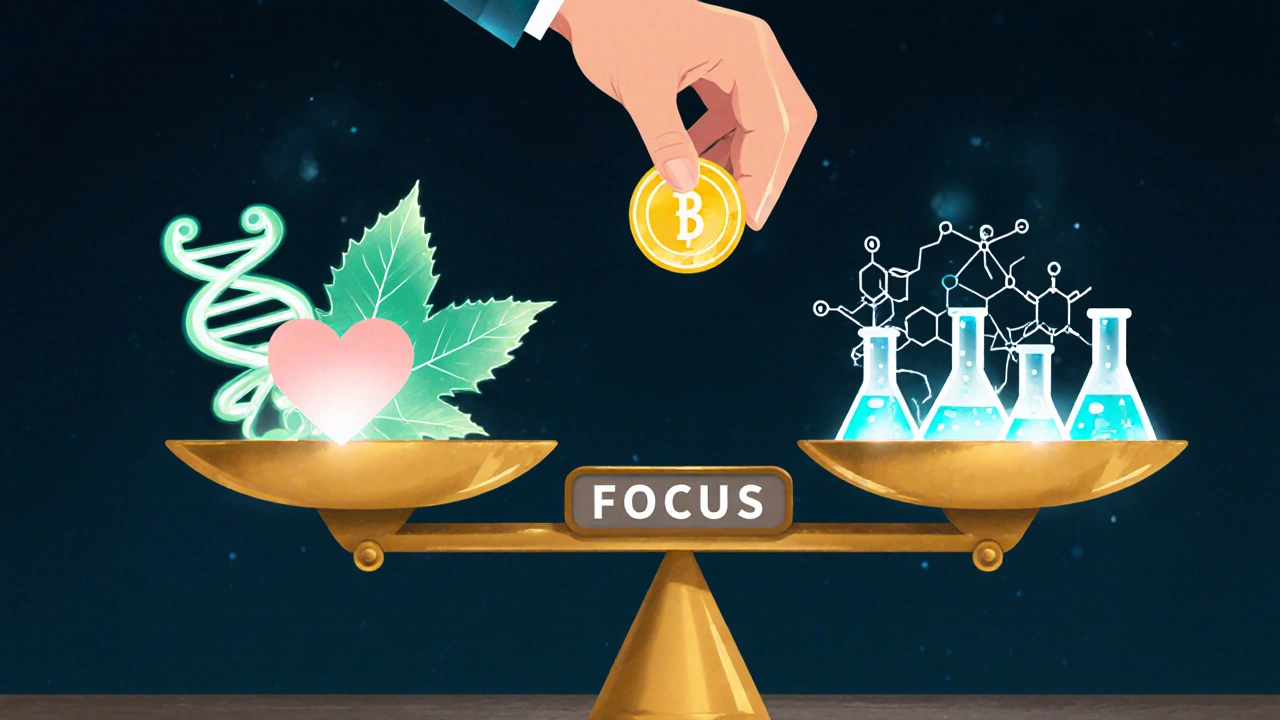NEET Topic Priority Calculator
Your NEET Focus Plan
Get a personalized priority list based on your time, goals, and strengths
Your Top Priority Topics
Every year, over 2 million students take NEET. Only about 10% get into medical college. The difference between those who make it and those who don’t isn’t always about how hard they studied-it’s about which topics they focused on. You can’t master everything. But you don’t need to. You need to know where the marks are hiding.
Biological Sciences: The Real Weightlifter
If you’re aiming for a top rank in NEET, biology is your strongest lever. It makes up 50% of the exam-360 out of 720 marks. That’s not a suggestion. That’s the math. And within biology, three topics pull nearly half of those marks: Human Physiology, Genetics and Evolution, and Plant Physiology.
Human Physiology alone gives you 20+ questions every year. Think about it: digestion, respiration, circulation, excretion, nervous system, endocrine glands-these aren’t just textbook chapters. They’re direct ticket punches to 80+ marks. Students who skip diagrams of the nephron or confuse the roles of insulin and glucagon lose easy points. Real exam data shows these topics appear in 92% of past papers.
Genetics and Evolution? That’s another 15-20 questions. Mendel’s laws, pedigree analysis, DNA replication, Hardy-Weinberg principle-these are predictable, repeatable, and heavily tested. You’ll see the same question types year after year. Memorizing Punnett squares isn’t rote learning-it’s strategic.
Plant Physiology gets less attention, but it’s low-hanging fruit. Photosynthesis, transpiration, plant growth regulators-these topics are easier to memorize than physics formulas and appear in 12-15 questions. Many students ignore them because they seem boring. That’s a mistake. These are your safety net questions.
Chemistry: The Balanced Scorecard
Chemistry is where you can turn average scores into top ranks. It’s 180 marks, split evenly between organic, inorganic, and physical chemistry. But here’s the twist: you don’t need to be a genius in all three. You need to dominate two.
Organic Chemistry is your goldmine. Named reactions-like Williamson ether synthesis, Cannizzaro, and Aldol condensation-are tested every year. Mechanisms matter. If you can draw the electron flow for a nucleophilic substitution, you’re already ahead of 60% of candidates. The NCERT textbook has 90% of what you need. No need for 10 reference books. Just master the reactions in Class 12 NCERT. That’s it.
Inorganic Chemistry is pure memory-but smart memory. Coordination compounds, periodic trends, and p-block elements are high-yield. Transition metals? Expect 5-7 questions on oxidation states, magnetic properties, and crystal field splitting. Memorize the color of common complexes: [Cu(NH₃)₄]²⁺ is deep blue. [Fe(CN)₆]⁴⁻ is pale yellow. These aren’t trivia. They’re direct marks.
Physical Chemistry? Don’t ignore it. But don’t drown in it. Focus on Thermodynamics, Chemical Equilibrium, and Electrochemistry. These three chapters make up 40% of physical chemistry questions. The rest-kinetics, solutions, surface chemistry-are nice to know, but low priority if you’re short on time. Solve 10 past paper questions from each high-yield chapter. That’s enough.
Physics: The Precision Game
Physics is the toughest, but it’s also the most scoring if you play it right. 180 marks. But only 5-7 topics give you 80% of the easy points.
Electrostatics and Current Electricity? 15+ questions combined. Coulomb’s law, Ohm’s law, Kirchhoff’s rules, RC circuits-these are formula-based but predictable. If you know how to handle series and parallel combinations of capacitors, you’re already solving 5 questions correctly. Don’t waste time on complex derivations. Focus on applications.
Optics is another big hitter. Ray optics alone gives you 6-8 questions. Mirror and lens formulas, refraction through prisms, total internal reflection-these are direct NCERT-based. Students often skip wave optics because it feels abstract. But interference and diffraction patterns? They appear every year. Learn the conditions: bright fringe when path difference = nλ. That’s enough.
Modern Physics? Don’t skip it. Photoelectric effect, Bohr’s model, nuclear decay, half-life-these are short, conceptual, and often repeated. You can memorize the formulas in a day. The trick? Practice numericals from past papers. The same values come up: Planck’s constant = 6.6 × 10⁻³⁴ J·s, speed of light = 3 × 10⁸ m/s. Know them cold.
Don’t chase Mechanics. Yes, it’s important. But it’s also the most time-consuming. If you’re behind, focus on Rotational Motion and Simple Harmonic Motion. They’re easier to crack than Newton’s laws in 3D. Skip complex pulley systems unless you’ve already nailed the basics.

How to Build Your Priority List
Here’s how to build your personal NEET strategy:
- Start with biology: Human Physiology, Genetics, Plant Physiology
- Then chemistry: Organic reactions (NCERT), Coordination compounds, Thermodynamics
- Then physics: Electrostatics, Current Electricity, Optics, Modern Physics
That’s your core. That’s where 70% of the exam lives. Spend 70% of your time here. The rest? Fill gaps.
Use past papers. Not just to test yourself-to find patterns. Go through the last 10 years. Highlight every question that came up. You’ll see the same 30 topics repeat again and again. That’s your syllabus. Not the whole book. Just those 30.
What to Skip (Yes, Really)
Some topics are traps. They look important. They’re not.
- Physics: Fluid mechanics, Waves (beyond sound), Semiconductors (beyond diodes)
- Chemistry: Environmental chemistry, Polymers (beyond types), Biomolecules (unless you’re aiming for AIIMS)
- Biology: Taxonomy of fungi and algae, details of plant anatomy beyond vascular bundles
These topics appear once every 3-4 years. They’re not worth 20 hours of your life. If you’ve already mastered the core, then, and only then, spend 2-3 hours on these. Not before.

Final Rule: Quality Over Quantity
NEET isn’t about how many books you’ve read. It’s about how many questions you can solve correctly in 3 hours. A student who knows 200 high-yield topics inside out will outscore someone who’s read 10 books but can’t recall the difference between mitosis and meiosis under pressure.
Practice with timed tests. Not just full mocks-chapter-wise speed drills. Give yourself 45 minutes for 45 biology questions. Train your brain to switch on, solve, and move. Speed is a skill. And it’s learnable.
The most important topic in NEET isn’t biology, chemistry, or physics. It’s focus. The ability to ignore distractions, cut through noise, and lock in on what actually matters. That’s what separates the toppers from the rest.
Is biology really the most important subject in NEET?
Yes. Biology accounts for 50% of the total marks (360 out of 720). Within biology, Human Physiology, Genetics, and Plant Physiology alone cover nearly 180 marks. These topics are highly predictable and appear in nearly every exam. Mastering them gives you a clear edge over students who spread their focus too thin.
Can I skip physics and still get a good rank in NEET?
No, you can’t skip physics entirely. But you don’t need to master every topic. Focus on high-yield areas: Electrostatics, Current Electricity, Optics, and Modern Physics. These cover 70-80% of physics questions. If you’re short on time, skip complex mechanics problems and fluid dynamics. Prioritize accuracy over coverage.
How many hours should I spend on chemistry each day?
For chemistry, aim for 2-3 hours daily if you’re in the final 6 months. Split it: 1 hour for organic reactions (practice drawing mechanisms), 1 hour for inorganic (memorize trends and complexes), and 30-45 minutes for physical chemistry numericals. Stick to NCERT for organic and inorganic-most questions come directly from it.
Should I solve previous years’ papers before or after finishing the syllabus?
Solve them after you’ve covered each chapter. Don’t wait until the end. Once you finish Human Physiology, solve the last 5 years’ NEET questions on that topic. This shows you exactly what’s tested and how. It also helps you identify weak spots early. Waiting until the last month to start past papers is a common mistake that leads to panic.
Are coaching materials better than NCERT for NEET?
NCERT is the foundation. 80-85% of NEET questions-especially in biology and chemistry-are directly based on NCERT text or diagrams. Coaching materials are useful for practice and shortcuts, but they’re not replacements. If you’re not confident with NCERT, no coaching book will save you. Master NCERT first, then use coaching material to test speed and depth.
How do I avoid burnout while focusing on high-yield topics?
Set daily goals based on topics, not hours. For example: “Today I’ll master 5 organic reactions and solve 15 biology MCQs.” Celebrate small wins. Take one full day off every two weeks. Burnout happens when you study without direction. When you know exactly what matters and stick to it, studying feels purposeful-not exhausting.
Next Steps: Your 30-Day NEET Focus Plan
Start today. Pick one high-yield topic from each subject. For biology: Human Circulatory System. For chemistry: Aldehydes and Ketones. For physics: Kirchhoff’s Laws.
Day 1-5: Learn the concepts. Use NCERT. Make flashcards for reactions and diagrams.
Day 6-10: Solve 30 past paper questions on each topic. Time yourself. Note which questions you got wrong.
Day 11-15: Revisit mistakes. Understand why you missed them. Redo the questions without looking at answers.
Day 16-20: Move to the next set of high-yield topics. Repeat.
Day 21-30: Take one full mock test every 3 days. Analyze only the high-yield sections. Don’t check your total score-check how many of your priority topics you nailed.
That’s it. No extra books. No panic. Just focus. That’s how winners are made.
